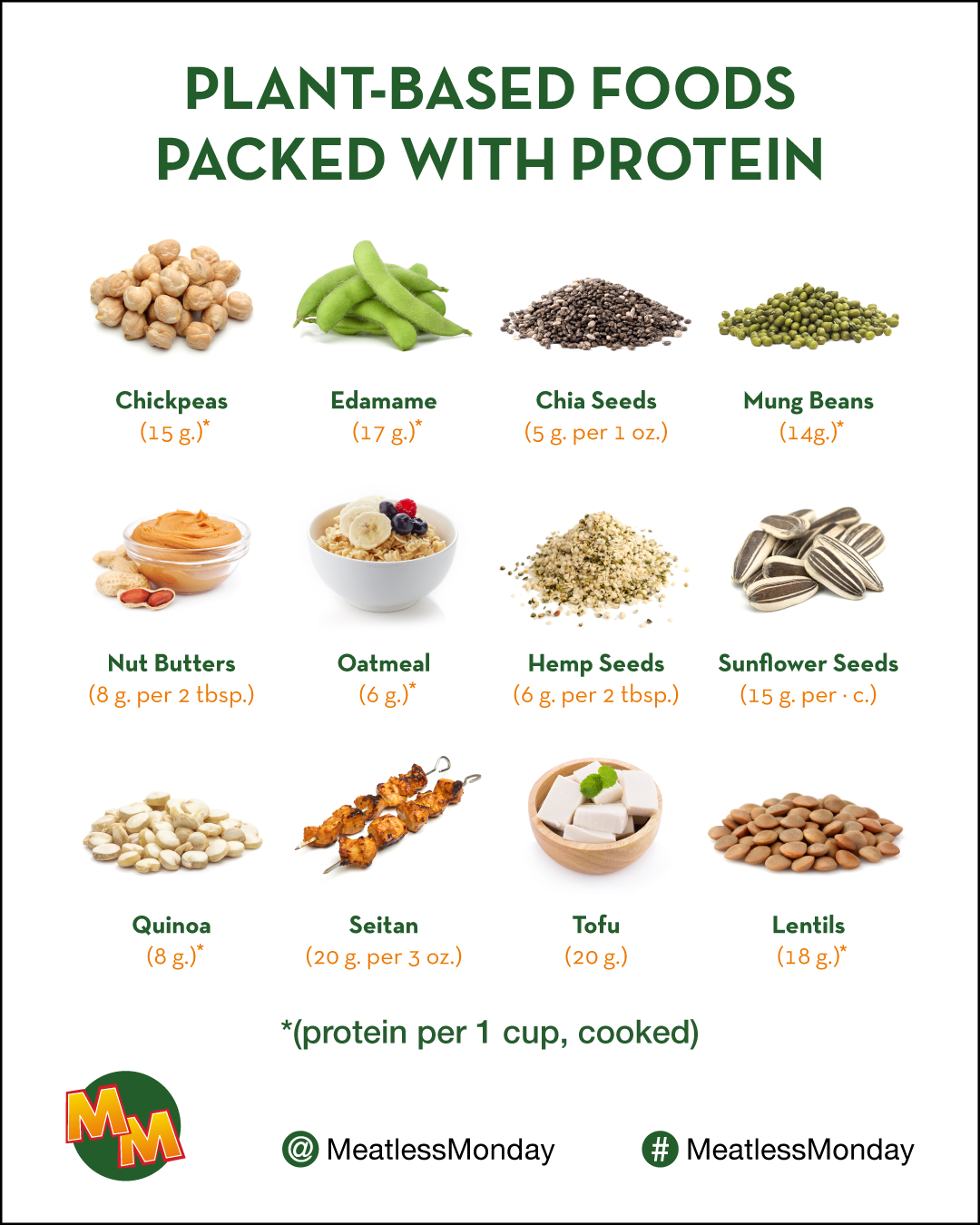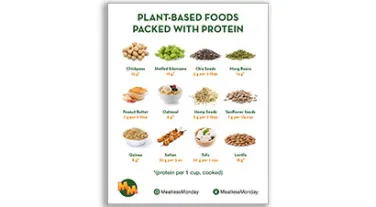Despite the common misconception, you don’t need to rely on meat, dairy, eggs, or other animal products to reach your daily protein goals. Beans, lentils, tofu, whole grains, nuts, seeds, and meat alternatives all contain protein, and these ingredients can often be used in place of chicken, beef, pork, or fish in recipes. Eating a combination of these plant-based ingredients ensures a balanced intake of protein, fiber, and other essential vitamins, minerals, and nutrients.

The five best types of plant-based proteins
Legumes
This broad category of ingredients includes beans, lentils, and peas. Legumes of all types are low in fat and cholesterol and excellent sources of fiber and protein. Examples include black beans, kidney beans, pinto beans, chickpeas, black-eyed peas, edamame, split peas, and lentils. These foods can easily be transformed into burgers, meatballs, or fillings for burritos and tacos. Add them to pasta, stew, chili, stir-fry, or salad for an extra boost of protein.
Whole grains
Whole grains consist of three parts: the bran, germ, and endosperm, each of which contains a different array of important vitamins, minerals, phytochemicals, and proteins. Examples of whole grains are quinoa, farro, wheat, millet, amaranth, oats, barley, and brown rice. Pair these with a bean, lentil, or plant-based meat for a more nutritionally complete meal. When making sandwiches or wraps, opt for whole-grain bread, buns, or tortillas.
Nuts and seeds
Nuts and seeds provide the body with healthy fats, fiber, and protein. Chia, hemp, and flax seeds can be sprinkled into yogurt, cereal, or smoothies, while pumpkin and sunflower seeds are easy to snack on while at work or school. Nuts, like cashews, almonds, walnuts, and peanuts, are also good sources of protein, containing between 5 and 9 grams of protein per quarter-cup. They can be eaten independently or incorporated into dishes for an extra crunch.
Vegetables
Vegetables are powerful sources of vitamins, minerals, and fiber, but many varieties also contain small to moderate amounts of protein. One cup of cooked spinach, asparagus, Brussels sprouts, or broccoli can contain 4-5 grams of protein, and, when paired with other plant-based ingredients, they can contribute to daily nutritional goals.
Meat alternatives
Tofu, seitan, tempeh, and plant-based meat alternatives have been consumed by cultures around the world for centuries. Meat alternatives have no cholesterol and less fat than beef, pork, or chicken, while often containing a comparable amount of protein per serving. For example, one cup of cooked tofu contains 20 grams of protein, similar to a beef patty. Pre-made plant-based nuggets, burgers, or patties are available at most supermarkets around the country, making them great options for people who want to cut down on meat consumption but still enjoy foods with similar tastes and textures.



